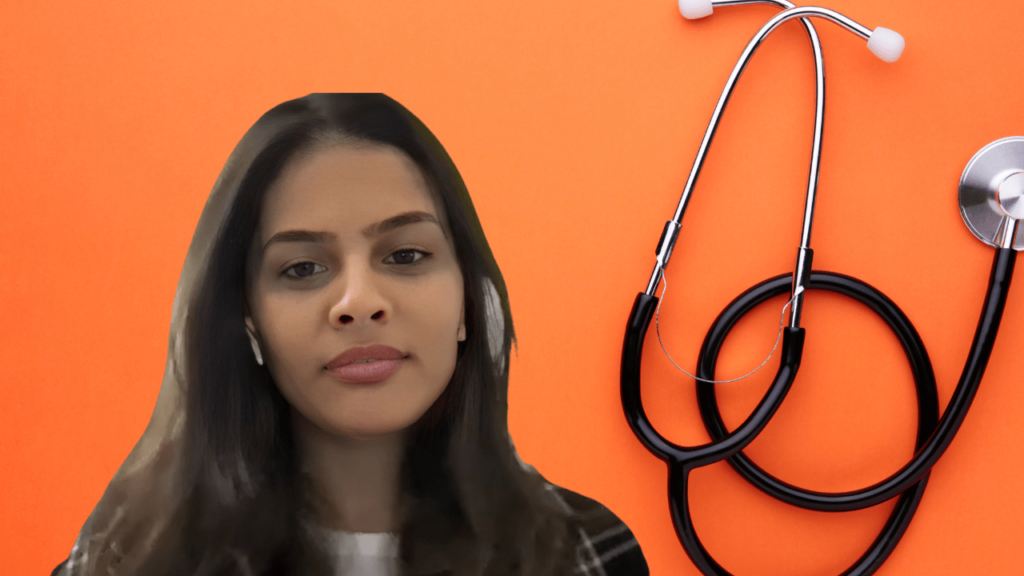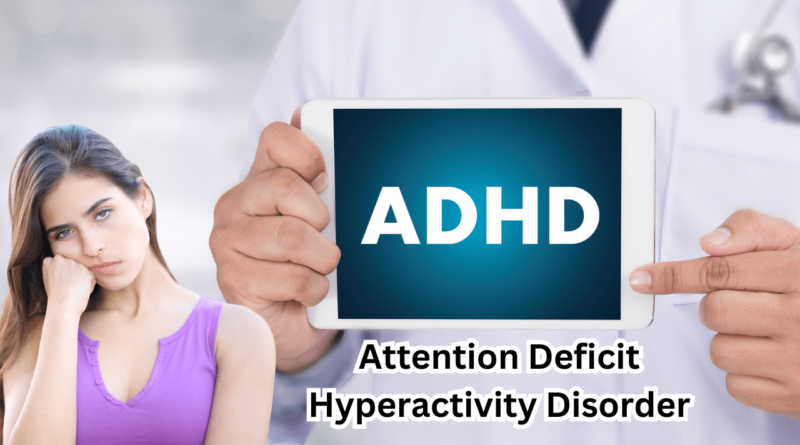Unveiling the Hidden Struggles: Late ADHD Diagnoses Reshape Lives and Relationships
Varshaa Narayanan’s journey reveals the complexity of adult Attention Deficit Hyperactivity Disorder (ADHD) in a compelling story that crosses borders and emotes. Her narrative clarifies the sometimes misconstrued field of neurodivergence, from the busy streets of Chennai to the tranquil vistas of California.
Introduction: A Wedding and a Wake-Up Call – Varshaa Narayanan
Varshaa Narayanan found herself at a crossroads between her past and present, just days before her wedding. While everyone was looking forward to a happy marriage, flashbacks to a difficult teenage years filled with bullying and difficulties in school kept coming back. This led her to make the crucial choice to consult a therapist.
The Therapeutic Revelation: From Denial to Diagnosis
Upon further investigation of Varshaa’s experiences, the therapist developed a suspicion: may Attention Deficit Hyperactivity Disorder (ADHD) be a contributing factor? After first rejecting this idea, Narayanan considers the storm of feelings that preceded her diagnosis in April 2021. In-depth interviews and psychometric tests were used in the diagnosis procedure to peel back the layers of an illness that is frequently linked to children.
ADHD Beyond Childhood: Breaking the Stereotype
ADHD, which is often associated with children, is becoming more and more evident in adulthood. Varshaa’s narrative reflects a rising pattern in which persons seeking professional assistance for emotional problems frequently disclose a lifetime battle with undiagnosed ADHD. 5.9% of adolescents and 2.8% of adults worldwide suffer with the illness, which defies preconceptions and necessitates a more complex understanding.
Challenges in Childhood Diagnosis: A Systemic Oversight
Experts in mental health bemoan the absence of an organized diagnosis for Attention Deficit Hyperactivity Disorder in youngsters. Dr. Nidhi Singhal, the Director of Research and Training at Action for Autism in Delhi, draws attention to kids’ inability to articulate concentration issues using words. This error, which is frequently ascribed to behavioral problems, causes diagnosis to be missed or delayed.
The Landscape of Adult ADHD: Coexisting Conditions and Diagnosis Complexity
Adults who are seeking an Attention Deficit Hyperactivity Disorder diagnosis frequently have concomitant problems such as substance misuse, trauma, depression, and anxiety. Porrselvi AP, a cognitive neuropsychologist in Chennai, stresses the value of a thorough assessment that takes behavioral patterns from a variety of life domains into account.
Gender Bias and ADHD: Unmasking a Hidden Struggle
Boys are more often diagnosed with Attention Deficit Hyperactivity Disorder, which contributes to a distorted perception of the disorder in the media. Girls with Attention Deficit Hyperactivity Disorder confront particular difficulties since internalizing symptoms frequently take precedence than outward ones. Anindita Kundu, an autistic and ADHD patient, clarifies how cultural norms and gender prejudice lead to misdiagnoses and underappreciated challenges.
The Emotional Toll: Stigma, Sensitivity, and Self-Perception
As Varshaa describes, adults with ADHD frequently struggle with feelings of inadequacy. Childhood experiences of feeling “dumb” or “stupid” are frequently reported, highlighting the psychological impact of untreated ADHD. Professor of Psychiatry Dr. Arun Kandaswamy explores the increased emotional dysregulation that people with ADHD face.
Vulnerabilities and Consequences: From Substance Abuse to Trauma
Long-term effects of an undiagnosed Attention Deficit Hyperactivity Disorder make a person more susceptible to abuse, crime, and drug addiction. King George Medical University’s Head of Psychiatry, Dr. Vivek Agarwal, highlights the need of early intervention in preventing high-risk behaviours and the ensuing social consequences.
ADHD Management: Beyond Medication
Medication and therapy are used in conjunction for treatment. Both stimulants and non-stimulants are used to treat symptoms; therapy is an essential part of the process. Still, there are obstacles in the way of efficient management.
Neurofeedback: Rewiring the Brain for Positive Change
Neurofeedback is a new treatment strategy that is gaining popularity. Brain signal mapping is a technique used by neurofeedback and biofeedback trainer Chetna Punia to promote good changes. Although it’s not a cure, it provides a special way for people to train their minds and deal with the difficulties that come with Attention Deficit Hyperactivity Disorder.
Voices of Advocacy: Narayanan, Srinivasan, Rathish, and the ADHD Community
The path of Varshaa Narayanan doesn’t finish with self-acceptance. Motivated by her personal encounters, she becomes one more voice in favour of raising awareness about ADHD. She works with celebrities like Preethi Srinivasan and Atheeth Rathish to break down barriers and promote a feeling of community on websites like Instagram and YouTube.
Conclusion: Unmasking the True Potential of Neurodivergence
The journey of Varshaa Narayanan captures the tenacity, difficulties, and victories of having adult (Attention Deficit Hyperactivity Disorder). Her narrative challenges society to shed its stereotypes as we explore the subtleties of neurodivergence and promotes an environment that values and respects individual differences. Not only is (Attention Deficit Hyperactivity Disorder) a problem in the undiscovered regions of the brain, but there is also a spectrum of distinct tales waiting to be heard.

Explore heart health and daylight saving changes.
FAQs
Q1: What is ADHD, and when does it typically manifest?
Answer: The chronic illness known as Attention Deficit Hyperactivity Disorder (ADHD) is typified by symptoms of impulsivity and/or hyperactivity. Usually, it first appears in early adolescence or infancy.
Q2: How prevalent is Attention Deficit Hyperactivity Disorder among adults globally?
Answer: Since 2.8% of adults globally suffer with ADHD, it is a major mental health problem for people everywhere..
Q3: Can Attention Deficit Hyperactivity Disorder be diagnosed in adults, and what are the challenges associated with late diagnoses?
Answer: It is possible to diagnose Attention Deficit Hyperactivity Disorder in adults. People who get a late diagnosis frequently struggle with doubt, self-discovery, and the desire for approval.
Q4: What are the common symptoms of (Attention Deficit Hyperactivity Disorder) in adults?
Answer: Adults with ADHD may exhibit symptoms including impulsivity, hyperactivity, inattention, mood swings, and problems in relationships and at work.
Q5: How does gender bias affect the diagnosis of (Attention Deficit Hyperactivity Disorder), particularly in women?
Answer: Boys are diagnosed with Attention Deficit Hyperactivity Disorder more commonly than girls. Gender bias may result in women’s symptoms being misinterpreted or underdiagnosed, which can lead to underdiagnoses.
Q6: Are there co-occurring conditions associated with adult (Attention Deficit Hyperactivity Disorder) diagnoses?
Answer: Indeed, co-occurring diseases such as drug misuse, personality disorders, depression, anxiety, and autism spectrum disorder are frequently linked to Attention Deficit Hyperactivity Disorder, making diagnosis more difficult.
Q7: What are the risks associated with untreated ADHD in adults?
Answer: Adults with untreated Attention Deficit Hyperactivity Disorder run a number of hazards, such as underachievement at work or school, antisocial behavior, mental health issues, drug addiction, accidents, and even attempted or actual suicide.
Q8: How is ADHD managed in adults, and what role does therapy play in the treatment process?
Answer: Therapy and medicine, such as stimulants or non-stimulants, are frequently used in the management of Attention Deficit Hyperactivity Disorder. Important elements of the treatment process include social skills training, behaviour therapy, parent education, psychoeducation, and cognitive-behavioral therapy.

